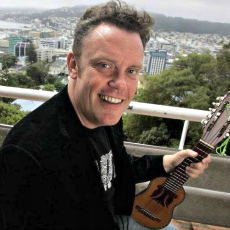Human Geography Professor wins supervision award
Professor Warwick Murray has been awarded the 2015 New Zealand Geographical Society’s President’s Award for Graduate Supervision.

Professor Warwick Murray has been awarded the 2015 New Zealand Geographical Society’s President’s Award for Graduate Supervision.
Professor Murray from the School of Geography, Environment and Earth Sciences was honoured for his contributions to geographically-focussed graduate studies in, of, and with Latin America.
The Human Geography researcher has been teaching at Victoria University since 2001, during which he has supervised more than 50 theses, including two PhD students, 16 Master’s and two Honours students in Latin American topics.
President Dr Ann Pomeroy described the important role Professor Murray has played in the Latin American field.
"Reaching the milestone of twenty successful graduate supervisions in Latin American topics should be noted by an award and as far as I am aware represents the single largest contribution in this regard in any field in New Zealand academia," reads Dr Pomeroy’s citation. "This has contributed significantly to our development expertise of the area and – given that many of the students have gone on to work in government and NGOs – our relations with the region which are increasingly important. Based in part on this, Victoria is now arguably the hub for Latin American work in Australia and New Zealand."
As Founding Director of the Victoria Institute for Links with Latin America (VILLA), Professor Murray has helped to develop relationships with Universities that have facilitated field work and exchange at the graduate student level in a range of countries including Chile, Peru, Argentina, Ecuador, Mexico, Brazil and Cuba. He is also Co-Chair of Australasian Iberian Latin American Studies Association.
Professor Murray says, "Latin America is the continent of the future that is undergoing a great social and cultural renovation, yet great challenges remain politically and economically. We need to understand these issues in order to engage with the continent in a mutually progressive and humane way. The social exchange that underpins postgraduate work lays the foundations for person to person and academic links that we hope will bear fruit in terms of our relationship with the region in future years."
